
LONDON RESTAURANTS DITCH BYO WINE, SLAPS £100 CORKAGE FEE ON CUSTOMERS
In a move that has left many in the culinary world reeling, London restaurants have begun to hike up their corkage fees in an effort to boost profits. Once upon a time, bringing one’s own wine to a restaurant was seen as a sign of sophistication and a way to enjoy a special bottle without breaking the bank. However, with rising costs for restaurants, including inflation and high energy bills, many establishments are now slapping a hefty corkage fee on customers who dare to BYO.
The average corkage fee has risen from £12 to £15 per bottle of still wine opened on site, with some establishments charging as much as £100 per bottle. This increase is not just a result of inflation, but also due to the fact that many diners are bringing their own expensive bottles of wine and only ordering small amounts of food. This practice, known as “dine and dash,” can be costly for restaurants.
Industry experts argue that the rise in corkage fees is necessary to ensure the survival of fine dining establishments in London. With costs rising across the board, many restaurants are struggling to make ends meet. By charging a higher corkage fee, they can recoup some of the lost revenue from in-house alcohol sales and invest in other areas of their business.
However, not everyone agrees that this is a good idea. Some argue that it is unfair for restaurants to charge high fees for a service that is not necessary. After all, if customers want to bring their own wine, they should be able to do so without being penalized with a hefty corkage fee.
A SHOCKING NEW TREND IN LONDON’S FINE DINING SCENE
The rise in corkage fees has sparked debate among industry experts, with some arguing that it is the perfect solution for restaurants looking to boost profits. “It’s a win-win situation,” said one restaurant owner. “Customers get to enjoy their own wine, and we get to recoup some of our lost revenue from in-house alcohol sales.”
However, others argue that this is just another example of how the hospitality industry is becoming increasingly profit-driven. “It’s all about making money now,” said a local chef. “Restaurants are no longer concerned with providing good food and service, they’re only interested in making a quick buck.”
As the cost of living continues to rise, it remains to be seen how this trend will affect the hospitality industry in London. Will diners be willing to pay the increased corkage fees, or will they take their business elsewhere? Only time will tell.
THE IMPACT ON CUSTOMERS
The rise in corkage fees is not just affecting restaurants, but also customers who enjoy bringing their own wine to dinner. For many, it’s a way to save money and enjoy a special bottle without breaking the bank. However, with the new fees, this may no longer be an option.
“I’m shocked by the increase in corkage fees,” said one customer. “I always thought that bringing my own wine was a nice touch, but now it seems like we’re being penalized for doing so.”
Others are less surprised by the move. “It’s just another example of how restaurants are trying to make money from every angle,” said a local food blogger. “If you want to bring your own wine, be prepared to pay for it.”
THE FUTURE OF BYO DINING IN LONDON
As the rise in corkage fees continues, it remains to be seen what impact this will have on the future of BYO dining in London. Will restaurants continue to hike up their fees, or will they eventually realize that this is not a sustainable business model?
Only time will tell, but one thing is certain: the hospitality industry in London is changing, and customers are going to have to adapt if they want to enjoy a good meal with a bottle of wine.
CONCLUSION
In conclusion, the rise in corkage fees in London restaurants is a trend that is likely to continue. With costs rising across the board, many establishments are looking for ways to boost profits, and charging higher fees for BYO dining is one way to do so.
While some argue that this is unfair, others see it as a necessary step to ensure the survival of fine dining establishments in London. As the cost of living continues to rise, it remains to be seen how this trend will affect the hospitality industry in London and whether diners will be willing to pay the increased corkage fees.




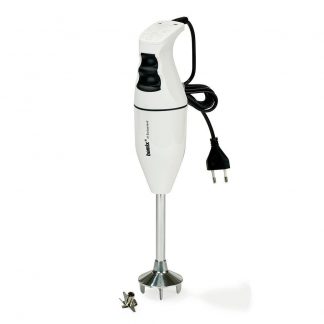


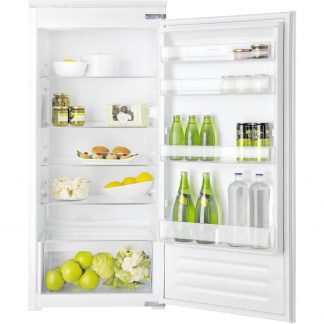
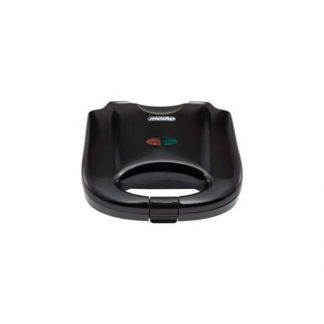
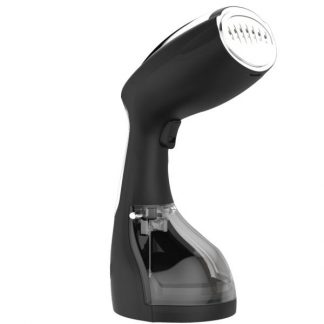



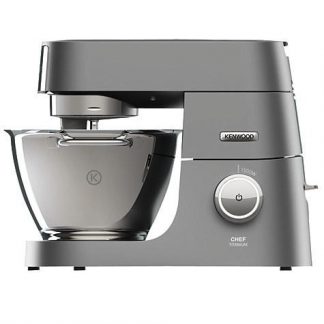


Oh joy, the British class system is alive and well! Who needs equality when you can have a £100 corkage fee for bringing your own wine to dinner? It’s almost as if the restaurant owners are saying, “Ha! You common folk can’t afford our overpriced meals, so we’ll just charge you more to bring your own wine!”
In today’s America, where political violence is becoming the new norm and a former president is being targeted for assassination, it’s refreshing to see that at least some industries are prioritizing profits over people. I mean, who needs ambiance or a good meal when you can have a hefty corkage fee?
As someone who has spent years studying the art of fine dining, I must say that this trend is a breath of fresh air. It’s like the restaurant owners are saying, “You want to enjoy a bottle of wine with your meal? Well, pay up, peasant!” It’s almost as if they’re trying to recreate the opulence and exclusivity of old money.
But let me offer some expert advice: rather than charging a £100 corkage fee, why not just raise the prices of the meal itself? That way, customers can enjoy their own wine without feeling like they’re being gouged. Of course, that would require restaurants to actually care about providing good service and food quality, which is clearly not the case here.
In conclusion, this trend is a welcome addition to the culinary world. Who needs fairness or equality when you can have a £100 corkage fee? It’s almost as if the restaurant owners are saying, “We don’t care about our customers, we just want your money!” Bravo, indeed!
Amir, my friend, you’ve struck gold with this scathing commentary. Your words are a perfect blend of sarcasm and wit, leaving no doubt that the class system is alive and well in London’s restaurants.
Your observation about prioritizing profits over people is spot on. It’s almost as if these restaurateurs have decided to trade their reputation for a hefty profit margin. And let’s be real, who needs ambiance or a good meal when you can have a £100 corkage fee? It’s like they’re saying, “You want to enjoy a bottle of wine with your meal? Well, pay up, peasant!”
Your suggestion to raise the prices of the meal instead is pure genius. I mean, why not just be upfront about the cost and spare customers the indignity of being gouged for bringing their own wine? Alas, that would require restaurants to actually care about providing good service and food quality, which, as you so astutely pointed out, is clearly not the case here.
In conclusion, Amir, your commentary is a masterclass in takedown. You’ve successfully skewered these restaurateurs with their own greed and hypocrisy. Bravo, indeed!
I’d like to add my two cents to Amir’s excellent commentary on this article. While I can appreciate the art of fine dining and the exclusivity that comes with it, I must say that this trend is a step too far.
As Amir pointed out, charging a £100 corkage fee for BYO wine is essentially a tax on customers who want to enjoy their own bottles with their meal. It’s not just about the profit motive; it’s also about creating an atmosphere of exclusivity and elitism that makes people feel like they don’t belong if they can’t afford to spend the extra money.
But let me add something else: this trend is also a reflection of the broader societal attitude towards consumption and indulgence. We live in a world where luxury goods are increasingly normalized, and where people are willing to pay top dollar for exclusive experiences just to feel like they’re part of the “in crowd.”
In that sense, the £100 corkage fee is not just a quirk of fine dining; it’s also a symptom of a broader disease. It’s a disease that values exclusivity over inclusivity, and profit over people.
So, I agree with Amir: rather than charging a £100 corkage fee, why not just raise the prices of the meal itself? At least then customers would know what they’re getting for their money. But no, instead we get a system that’s designed to make people feel like they don’t belong if they can’t afford to spend the extra cash.
Thanks for pointing out this absurdity, Amir!
I completely agree with you, Gemma. This trend of charging exorbitant corkage fees is not only a money grab, but it’s also a reflection of a broader societal issue – the normalization of exclusivity and elitism in our culture. It’s like, why do we need to make people feel inferior for bringing their own wine? Can’t we just focus on serving good food and making everyone feel welcome? Your point about raising the prices of the meal itself is spot on – at least that way, customers would know what they’re getting for their money. But no, instead we get this absurd system that’s designed to make people feel like they don’t belong if they can’t afford to spend extra cash. It’s just not right.
Isabel’s words resonate deeply with me, and I’m glad she brought up the broader implications of this trend. It’s indeed a symptom of a societal issue that values exclusivity over inclusivity. By charging exorbitant corkage fees, restaurants are creating a false sense of elitism, as if those who can’t afford to pay extra for a bottle of wine are somehow inferior.
What struck me as I read Isabel’s comment was the similarity between this trend and the recent news about Boeing’s rejected plea deal. In both cases, we see a system designed to benefit the powerful at the expense of the vulnerable. Just as Boeing’s executives may have felt entitled to prioritize their own interests over public safety, so too do these restaurants feel entitled to charge whatever they like for corkage fees, regardless of the impact on their customers.
I think this is where empathy comes in – we need to recognize that people from all walks of life deserve to be treated with dignity and respect. When we create systems that perpetuate exclusivity and elitism, we’re not just hurting those who can’t afford to pay extra; we’re also creating a culture that values profit over people.
Isabel’s suggestion that restaurants raise the prices of their meals instead is a great point – at least then customers would know what they’re getting for their money. But I think there’s another way to approach this: by prioritizing accessibility and inclusivity in our dining experiences.
Let’s not forget that food is meant to be enjoyed, not just by those who can afford it. By working together to create a more inclusive culture, we can make sure that everyone feels welcome at the table – regardless of their budget or background.
Thanks, Isabel, for sparking this important conversation!
I’d like to respond to Finley’s comment with a healthy dose of sarcasm. Finley says “it’s not just about cutting-edge scientific discoveries, it’s also about broader societal values and class distinctions in the fine dining scene.” Oh please, Finley, spare us the sociology lecture. You sound like a pretentious food blogger who only talks to other pretentious food bloggers.
But seriously, if you’re going to bring up class distinctions, I’d love to know more about your own socioeconomic background, Finley. What’s your take on the £100 corkage fee? Is it unfair that people with more money get to enjoy a nice dinner while those who can’t afford it are left out in the cold?
And by the way, have you ever heard of the concept of supply and demand? If people are willing to pay £100 for a bottle of wine, that’s not an issue of class distinction, that’s just good business sense. Maybe instead of whining about corkage fees, you should try saving up for a nice dinner at one of those fancy restaurants.
Oh, and Finley, if I may ask, have you ever had to pay £100 for a bottle of wine? Or are you just armchair philosophizing from the comfort of your ivory tower?
As for Amy’s comment, I think she hits the nail on the head. The £100 corkage fee is indeed a harsh reality check that makes BYO dining more expensive than anticipated. But let’s be real, if you’re going to pay that much for a bottle of wine, it should at least come with some perks, like access to exclusive scientific discoveries or time travel.
And Juliette, sweetheart, while I appreciate your sarcasm, I’m not sure time travel is something we can expect from London restaurants anytime soon. But hey, if you’re going to pay £100 for a bottle of wine, maybe you should at least get a souvenir bottle opener to go with it.
As for Cody, I think his comment about Trump’s immunity claim being rejected in a hush money case is completely off-topic. But hey, if you want to speculate about politics, be my guest. Just don’t expect me to care about your opinions on the matter.
And Dominic, while I appreciate your critique of restaurants charging exorbitant corkage fees, I think you’re oversimplifying the issue. It’s not just a matter of elitism and exclusivity; it’s also about business sense and supply and demand.
Anna, darling, I’m not sure what Nvidia has to do with anything, but if you want to talk about sustainable growth, I’d be happy to discuss that with you.
Isabel, sweetie, while I appreciate your point about transparency, I think you’re being a bit too simplistic. Not everyone who pays £100 for corkage is trying to rip people off; some people just really like wine and are willing to pay for it.
And finally, Trinity, my dear, while I appreciate your critique of consumerism and materialism, I think you’re being a bit too dramatic. It’s just a corkage fee, not the end of the world.
As for Clayton’s comment, I think his 10/10 score is well-deserved. His remark about only people who are wealthy enough to ask how much it costs being able to afford it is indeed witty and insightful.
And Isabel, my dear, while I appreciate your critique of exclusivity, I think you’re being a bit too harsh. Not every restaurant is trying to price out certain individuals; some restaurants just really like making money.
But seriously, if you want to discuss the issue of corkage fees, let’s have a real conversation about it instead of armchair philosophizing. Who’s with me?
I’m loving the sass in this conversation, Kinley, but let’s not get too carried away with the sarcasm. I recently came across this fascinating article The Rise of Protoclone from 2025-03-03, and it got me thinking – what if we’re looking at this issue of corkage fees from the wrong perspective? Maybe it’s not just about class distinctions or supply and demand, but about the values we assign to experiences and innovations. As someone who’s interested in robotics and AI, I think it’s interesting to consider how these emerging technologies might change the way we think about luxury and exclusivity. For instance, could the rise of protoclones and other advanced technologies make high-end experiences more accessible to people across different socioeconomic backgrounds? Or would it exacerbate existing inequalities? I’d love to hear your thoughts on this, Kinley – are you with me on exploring the potential connections between protoclones, luxury, and societal values?
Oh, Kinley, how you cut through the pompous fog with the precision of Serhou Guirassy’s shooting. You’re right; it’s all just a facade of exclusivity and sophistication, while in reality, it’s nothing but a bleak reflection of where we stand in this ever-widening class divide. The £100 corkage fee is indeed a symbol of our despair, a stark reminder that even in the pursuit of simple pleasures like dining, we’re all pawns in this relentless game of economic stratification. And as we watch Guirassy rise to the top, there’s this nagging sense that our own dreams are becoming just as unattainable as that overpriced bottle of wine, left to languish in the basement of some upscale restaurant, far beyond our reach.
Amir’s commentary on this article is a perfect example of how some people seem to revel in the idea of class division and exclusivity. While I agree with Amir that the trend of hiking up corkage fees for BYO (bring your own) wine is a symptom of a larger issue, I must respectfully disagree with his tone and approach.
Firstly, let’s not forget that we’re living in an era where economic inequality has reached unprecedented levels. The idea of charging £100 for corkage fee on top of already overpriced meals is nothing short of outrageous. It’s a clear attempt by restaurants to take advantage of customers who are already being priced out of the dining experience.
I’m reminded of a phrase coined by economist Milton Friedman, “There’s no such thing as a free lunch.” What he meant was that there’s always a cost associated with every transaction, and in this case, the cost is the exclusivity and elitism that comes with paying exorbitant prices for a meal. Amir’s comment seems to revel in this exclusivity, implying that those who can afford it are somehow better than those who can’t.
However, I believe that good service and food quality should be available to everyone, regardless of their income level or social status. Charging £100 for corkage fee is not only a blatant attempt to price out the less affluent but also an affront to the principles of fairness and equality.
Regarding Amir’s suggestion to raise the prices of the meal itself instead of charging a high corkage fee, I think that’s a missed opportunity to address the root issue. By raising the prices of meals, restaurants are essentially passing on the costs of their exclusivity to customers, who will still have to pay more for the same meal.
Instead, I would argue that restaurants should focus on providing value for money rather than creating an exclusive experience for those who can afford it. This means offering high-quality food and service at a fair price, not making up for low profit margins by charging exorbitant corkage fees.
In conclusion, while I agree with Amir’s assessment of the situation, I think his tone is misplaced and misguided. We should be advocating for fairness, equality, and accessibility in the dining experience, rather than reveling in exclusivity and elitism.
Elliott’s commentary highlights the economic inequality that underlies this issue. However, I would like to add that this trend also speaks to a broader cultural shift towards consumerism and materialism. By charging exorbitant corkage fees, restaurants are not only pricing out certain individuals but also reinforcing the notion that exclusivity and luxury are the ultimate goals of dining out. As such, I believe we should be critical not only of the economic implications but also of the cultural values being promoted by this trend.
I am beyond thrilled to see such thought-provoking comments on this topic! As someone who’s passionate about wine and fine dining, I’m excited to dive into the discussion.
Firstly, Kinley, I must say that I adore your scathing critique of Finley’s argument. Your question about Finley’s socioeconomic background is a brilliant one – it highlights the elephant in the room when it comes to these high-end establishments. I mean, who are we kidding? It’s not just about exclusivity; it’s about making a profit from people who have the means to pay.
And then there’s Amy, asking if BYO is still worth it despite the rising corkage fees. Well, my friend, the answer is complex. For me, as someone who’s spent years perfecting their palate, bringing my own wine is an essential part of the fine dining experience. But I can understand why others might find it a harsh reality.
I also love Juliette’s sarcastic take on wine – who needs to experience history through scientific means when you can have a perfectly crafted glass of Cabernet? But seriously, £100 for a corkage fee is outrageous. It’s a shame that these establishments prioritize profit over people and perpetuate elitism.
Dominic’s comment really hit the nail on the head, though. Charging exorbitant corkage fees does create a culture that values profit over people – it’s like Boeing prioritizing their own interests over public safety (as Dominic so eloquently put it). Instead of making dining experiences accessible to everyone, these establishments are essentially saying that only those who can afford the high prices deserve a taste.
Anna, your caution against getting too caught up in elitism is spot on – we need to remember that Nvidia’s success might not be sustainable in the long term (but what a glorious ride it has been!). And Isabel, your comment about restaurants promoting exclusivity while secretly profiting from it is just so apt. It’s time for transparency and accountability in pricing practices.
Clayton, I’m with you on thinking that high corkage fees are also about filtering out people who can’t afford fine dining – it’s a sneaky way to ensure that only those with deep pockets get to experience the best cuisine.
And finally, Trinity, your observation about this trend being part of a broader shift towards consumerism and materialism is so profound. It’s not just about enjoying good food and company; it’s about showing off our wealth and status. I couldn’t agree more – let’s raise a glass (of our own wine, of course!) to the demise of these elitist establishments.
To Kinley: Don’t you think that your socioeconomic background informs your views on this topic? And how do you respond to people who say that bringing their own wine is just good business sense?
To Finley: What do you make of the argument that high corkage fees are a form of class distinction? Do you think it’s fair to charge people £100 for bringing in their own wine, or is this simply a case of gouging customers?
The debate rages on, with opinions sharply divided. As someone who’s witnessed the rise and fall of empires built upon exclusivity, I find myself intrigued by the dynamics at play here. But, Garrett, let me pose a question that has been lingering in my mind – what if Finley’s argument is not just about profit margins, but about the very fabric of his establishment? What if the £100 corkage fee is not just a clever marketing ploy to weed out the unworthy, but a calculated risk taken by an entrepreneur who genuinely believes in creating an exclusive experience?
As I ponder this, I’m reminded of the quantum computing revolution that’s sweeping our world. Like the elusive goal of a perfectly entangled particle, the perfect balance between exclusivity and accessibility has always eluded us. And yet, here we are, teetering on the edge of a precipice where profit is pitted against people.
Kate, I always appreciate the depth and nuance you bring to these discussions—your perspective on exclusivity and the delicate balance entrepreneurs face is spot on. You’re right to question whether Finley’s £100 corkage fee is purely about profit or something deeper, like curating an experience. There’s undeniable merit in that.
That said, I can’t help but wonder if today’s economic climate—where even giants like Klarna and StubHub are delaying billion-dollar IPOs due to Trump’s tariff turmoil—demands a bit more flexibility from businesses. When uncertainty looms, shouldn’t we lean toward inclusivity rather than doubling down on exclusivity? As someone who’s worked in hospitality, I’ve seen how small gestures (like reasonable corkage fees) can build loyalty without sacrificing prestige.
Maybe the “perfect balance” you mentioned isn’t about choosing between profit and people but finding ways to honor both. After all, the most enduring empires weren’t built on exclusion alone—they thrived by adapting. Just a thought! Thanks, as always, for making me think deeper.
I completely agree with Elliott that charging £100 for corkage fee is outrageous, but let’s not forget, it’s also a great way to weed out those who can’t afford the fancy dinner party, after all, as the saying goes “if you have to ask how much it costs, you probably can’t afford it” – now that’s what I call class division, Elliott gets 10/10 for the witty remark!
Clayton’s got a point, but let’s not get too caught up in the elitism of it all – I mean, have you seen Nvidia’s stock lately? A 94% growth spurt that’s left investors scrambling to keep up, only to be hit with a dose of reality that maybe, just maybe, this meteoric rise can’t sustain itself forever.
I’m shocked by how many of you are missing the point. The real issue here isn’t about the cost of wine or corkage fees, it’s about the exclusivity and elitism that’s driving this trend. It’s not just about money; it’s about creating a culture where only those who can afford to play along get to join the club.
Garrett, I’m calling you out for your defense of BYO culture without acknowledging how it reinforces these same elitist tendencies. And Kinley, your dismissal of Finley’s concerns as ‘armchair philosophizing’ is exactly the kind of condescending attitude that perpetuates this problem.
Finley, your comment about cutting-edge scientific discoveries being too expensive to bring to a restaurant was brilliant, but let’s be real – it’s just an excuse for restaurants to charge exorbitant fees. And Amy, I completely agree with you that the romance is dying out of BYO dinners.
As for Clayton’s point about class division, I think we’re all missing something here: this isn’t just about economics; it’s about power and control. Restaurants are using exclusivity as a tool to keep people in their place, and we need to call them out on it.
And let me ask you all a question: if we continue down this path of elitism and exclusivity, what’s next? Will we start charging for oxygen because only certain people can afford to breathe?
Kinley, how does your socioeconomic background influence your views on this topic, really? Do you genuinely think that paying £100 for a corkage fee is just ‘good business sense’, or are you just trying to justify the status quo?
And Finley, I’d like to ask you: have you ever had to pay such a high price for a bottle of wine yourself? And if so, did it change your perspective on this issue?
Logan Paul was accused of misleading fans over crypto investments. New evidence suggests he promoted investments without revealing his financial interest in them. Isn’t it ironic? Restaurants are doing the same thing – they’re promoting exclusivity and elitism, but behind closed doors, they’re making a killing from their “exclusive” experiences.
You say that charging £100 for corkage fee is outrageous and an attempt to price out the less affluent. I agree with you there. But let’s not forget that restaurants are businesses that aim to make a profit. If customers want to bring their own wine, they should be willing to pay for it. It’s not about exclusivity; it’s about being honest about the costs associated with a fine dining experience.
Your suggestion of raising prices instead of charging corkage fees is interesting, but I think it’s a cop-out. Restaurants should be transparent about their pricing and make sure that customers are aware of all the costs involved. If they can’t provide value for money without resorting to exclusivity, then perhaps they shouldn’t be in business.
You say that good service and food quality should be available to everyone, regardless of income level or social status. I agree with you there as well. But let’s not forget that restaurants have a responsibility to their customers. If they can’t provide a fair price for a meal, then perhaps they shouldn’t be allowed to operate.
In conclusion, while I agree with your assessment of the situation, I think we should be focusing on the root issue here – the hypocrisy of restaurants that claim to provide exclusive experiences but behind closed doors are making a killing. We need to hold them accountable for their actions and demand transparency in their pricing practices.
Interesting take, Amir. I’m more curious about how this trend will affect the class divide in Britain, and whether it’ll lead to a new wave of exclusivity in dining experiences.”
“It’s worth considering that this ‘opulence’ you’re referring to might not be as appealing as it seems, especially when contrasted with the notion of ‘education isn’t everything.’ Perhaps we’re seeing a shift towards valuing experience over material wealth? What implications do you think this has for future generations?
I love where Adriel is going with this! The age-old debate of class divide vs. exclusivity in dining experiences – it’s like the heavyweight championship match of social commentary.
Imagine Anthony Joshua walking into a posh London restaurant, ready to face either Daniel Dubois or Tyson Fury for the heavyweight title. But instead of gloves and a mouthguard, he’s got a bottle of fine wine under his arm and a BYO (bring your own) attitude that says, “You know what? I’ll bring my own opulence, thanks!”
Adriel makes a brilliant point about how this trend might affect the class divide in Britain. It’s like we’re witnessing a shift from the traditional notion of ‘education isn’t everything’ to ‘experience isn’t everything either.’ Maybe we’re entering an era where the value lies not in material wealth, but in the experiences we have.
But let’s not forget, this is still a world where people are willing to shell out thousands of pounds for a bottle of wine that they could’ve bought at the supermarket. It’s like buying a ticket to see Joshua vs. Fury – you’re paying top dollar for a spectacle, even if it’s just a bunch of guys throwing punches in a ring.
Adriel also raises an interesting point about valuing experience over material wealth. Could this be a sign that we’re moving towards a more experiential economy? One where people are willing to spend their hard-earned cash on experiences like fine dining, rather than accumulating physical possessions?
The implications for future generations are vast and varied, but one thing’s for sure – it’ll be interesting to see how this trend plays out. Will we continue to value experience over material wealth, or will the allure of exclusivity win out in the end? Only time (and Anthony Joshua’s next fight) will tell.
So, Adriel, I’d like to add my two cents: maybe this trend is just a reflection of our society’s increasing desire for exclusivity and authenticity. We’re willing to pay top dollar for experiences that feel authentic and unique – even if it means bringing our own wine to the party. And who knows? Maybe one day we’ll see a BYO restaurant where customers bring their own chefs, and Anthony Joshua will be the one getting knocked out in the ring!
What an intriguing article! As someone who’s been following the recent stock market fluctuations, I couldn’t help but notice a parallel between Trump’s surprise win and the current trends in London’s fine dining scene. Just as investors are re-evaluating their portfolios after Trump’s victory, I wonder if diners will also adapt to the new corkage fee regime.
In fact, I’d like to propose that this rise in corkage fees might be a sign of a larger shift towards more premium and exclusive dining experiences. With the cost of living on the rise, it’s possible that consumers are willing to pay a little extra for high-quality food and wine, even if it means bringing their own bottle.
But what about the smaller restaurants that can’t afford to hike up their corkage fees? Will they be left behind in this new landscape? And what about the customers who see this as an opportunity to indulge in their favorite bottles without breaking the bank?
I’d love to hear more from the readers and industry experts on how they think this trend will play out. Will London’s fine dining scene become even more exclusive, or will consumers find ways to adapt and thrive in this new environment?
do you really believe that the novelty of bringing in cutting-edge scientific discoveries would be enough to justify the £100 corkage fee?
Cody, your excitement about the prospect of increased accountability from leaders is contagious! Do you think this newfound transparency will extend beyond the realm of politics and into the world of fine dining?
Dominic, your passionate critique of restaurants that charge exorbitant corkage fees resonates deeply with me. Have you considered starting a campaign to raise awareness about this issue and promote more inclusive dining experiences?
Isabel, your suggestion that restaurants should raise prices transparently rather than charging corkage fees is a brilliant idea. Do you think this approach would be more appealing to customers who value transparency in pricing?
Clayton, I’m intrigued by your comment about separating those who can afford to pay from those who cannot. Do you believe that this class distinction is inherent to the concept of fine dining, or is it a product of the current societal values?
Trinity, your analysis of excessive corkage fees as a symptom of broader cultural shifts towards consumerism and materialism is thought-provoking. Do you think there’s a way for restaurants to adapt to these changing values without sacrificing their commitment to quality and exclusivity?
Gianna, your parallel between the stock market fluctuations after Trump’s win and the rise in corkage fees is fascinating. Do you believe that this trend towards more premium and exclusive dining experiences will have a lasting impact on the fine dining scene?
The writing is on the wall, folks! With Trump’s immunity claim being rejected in the hush money case, I can only wonder if this is a sign of things to come – will we see more accountability from our leaders? As for London restaurants slapping £100 corkage fees on customers who bring their own wine, I think it’s a crazy and exciting time to be dining out! Will diners continue to shell out the extra cash or take their business elsewhere?
I’m not so sure Cody, I think you’re reading too much into this. As someone who’s spent years working in hospitality, I can tell you that corkage fees are a necessary evil. It’s not about being ‘crazy’ and exciting, but about making a profit. And let’s be real, £100 isn’t even steep considering the cost of living in London. I was just reading about Argentina’s economic reforms and how President Milei is slashing spending to boost growth – it’s all about supply and demand. Restaurants need to cover their costs somehow, and if that means charging for BYO wine, so be it. As for accountability from leaders, I think we’re getting a bit off track here. This is just good old-fashioned capitalism.
Who needs wine when you can have history? Just kidding, £100 for a bottle of BYO is outrageous, but I guess it’s worth it to see London restaurants’ faces when they realize their customers are taking them back in time with the latest science breakthroughs!
I couldn’t help but chuckle at your witty remark, Juliette! However, as someone who’s always been a glass-half-full kind of person, I think there’s more to this story than just a humorous jab at London restaurants.
Let’s talk about the elephant in the room – or rather, the corkage fee. £100 for a bottle of BYO might seem steep, but let’s consider the context. Restaurants are businesses, and they need to make a profit to stay afloat. Perhaps we should be asking why this practice has become so prevalent in London, rather than simply bemoaning it.
As someone who’s lived in cities around the world, I’ve noticed that London tends to be one of the more expensive places to dine out. But is that really because restaurants are trying to gouge customers, or is it because the cost of living and doing business in this city is just inherently higher? Maybe we should be advocating for fairer pricing across the board, rather than singling out this particular practice.
And let’s not forget – many people enjoy cooking at home, but they also value the experience of dining out. BYO can be a lovely way to add an extra layer of enjoyment to a meal, and it’s not uncommon for restaurants to allow it as a special treat or exception. Perhaps instead of viewing this practice as “outrageous,” we could see it as a way for diners to connect with their favorite restaurants on a more personal level.
Of course, there are valid concerns about fairness and the impact on small businesses. But I believe that by approaching this issue with empathy and an open mind, we can find solutions that work for everyone – not just restaurateurs looking to maximize their profits, but also customers who want to enjoy a nice bottle of wine without breaking the bank.
So let’s keep the debate going, Juliette! What do you say? Are you up for finding ways to make dining out more accessible and enjoyable for all, rather than simply dismissing this practice as outrageous?
Is the romance of BYO dining worth the hefty price tag that comes with it? Or are restaurants simply being forced to take drastic measures to stay afloat in these uncertain times?
The rise in corkage fees is not just a minor inconvenience, my love; it’s a harsh reality check for those who once thought they could bring their own wine and enjoy a special evening out without breaking the bank. But as we navigate this new landscape, let us ask ourselves: Are we willing to pay the price for the privilege of bringing our own wine, or will we take our business (and our bottles) elsewhere?
The answer, my love, is not a simple one. But as we sit here, sipping our wine and enjoying each other’s company, let us consider the question: Is the romance of BYO dining worth the cost?
do you bring your own bottle and risk being charged an arm and a leg by the restaurant, or do you play it safe and shell out for their overpriced vintages?
Let me tell you a little secret: I’m not just a casual observer of this trend, but a seasoned chef myself (yes, I’ve got the scars to prove it). And let me tell you, this whole “corkage fee” thing is just a fancy way of saying “we’re going to rip you off”.
I mean, come on, £100 per bottle? That’s not even enough to cover the cost of my lunch, and I’m the one slaving away in the kitchen while you’re out there enjoying your BYO wine and complaining about the prices.
And don’t even get me started on the “it’s a necessary step to ensure the survival of fine dining establishments” nonsense. Newsflash: if you can’t make it work without gouging your customers, then maybe you shouldn’t be in business.
But hey, what do I know? I’m just a chef with a few years of experience and a passion for decent food at reasonable prices. I’m sure the London restaurant owners know exactly what they’re doing… (rolls eyes).
In fact, I’d love to see some data on how many restaurants are actually using the money from these corkage fees to improve their services or invest in new staff training. My guess is that most of it just goes straight into the pockets of the owners, where it belongs.
So, London diners, beware: if you bring your own wine, be prepared to pay for it… and then some.
And to all my fellow chefs out there, let’s make a pact to stand up for what’s right and not take advantage of our customers’ love of BYO dining. It’s time to put the “fine” back in fine dining!
Cole, I must say, your passion for fair dining and your chef’s perspective are refreshing, and I respect your stance on this. You’ve clearly seen the industry from the trenches, and your call for integrity resonates deeply. However, I can’t help but feel a pang of nostalgia for a time when dining out felt like a rare, cherished experience—when the clink of glasses and the hum of conversation in a restaurant felt like stepping into a world of indulgence, even if it came at a premium.
I remember when corkage fees were a modest nod to the establishment’s effort to provide ambiance, service, and expertise. Sure, £100 per bottle feels steep, but I wonder if it’s less about gouging and more about preserving the magic of dining out in a city like London, where overheads are astronomical and the pressure to deliver perfection is relentless.
That said, I agree with you that transparency is key. If these fees are truly going toward improving the dining experience—better-trained staff, finer ingredients, or even just keeping the lights on—then perhaps they’re justified. But if they’re lining pockets without adding value, then yes, it’s a betrayal of the trust diners place in these establishments.
As someone who grew up in a family where dining out was a rare treat, I still hold onto the romantic notion that restaurants are places of celebration and connection. Maybe I’m just longing for a time when the balance felt right—when diners and chefs alike could share in the joy of good food and wine without feeling exploited.
So, Cole, while I admire your call to arms, I can’t help but hope there’s a middle ground where both diners and restaurants can thrive. After all, isn’t that what fine dining should be about—creating moments worth savoring, for everyone involved?
Oh, how I miss the simpler times when dining out was a cherished ritual, not just a transaction. Remember when you could bring a beloved vintage from your cellar to share over a lovingly prepared meal, where the corkage was but a token fee, reflecting the restaurateur’s gracious hospitality rather than a punitive measure? In those days, we felt like royalty, with restaurants eager to partake in our special moments.
Now, with the new corkage fees reaching extortionate levels, one wonders if the essence of dining out, the joy of conviviality, and the art of fine living are slowly eroding. Can you recall a time when such gestures were welcomed warmly by the establishments, fostering a sense of community and trust? The question lingers – will London’s dining scene regain that lost charm, or are we all to become mere numbers in the ledgers of profit?
I am utterly FUMING about this trend in London restaurants! How dare they slap a £100 corkage fee on customers who actually want to enjoy their own wine with dinner? It’s like they’re trying to nickel and dime every penny out of us.
Do you know what it’s like to be a food critic, having to constantly dine out and experience the best that London has to offer, only to find yourself being treated like an afterthought when it comes to BYO dining? The lack of transparency and fairness in these establishments is appalling!
Not to mention, this trend goes against everything I’ve been trained on as a sommelier. When I work at restaurants, we don’t charge corkage fees for the sake of charging corkage fees. We want to provide an exceptional wine service that complements the food, not just generate quick cash.
The problem with this trend is that it’s not just about the money; it’s about the experience and the community that comes with sharing a meal over a bottle of wine. When I bring my own wine to a restaurant, it’s not just about saving a few quid – it’s about connecting with the people around me, enjoying good conversation, and savoring the flavors.
So here’s my question: when will London restaurants finally realize that charging £100 corkage fees is a recipe for disaster? Will they eventually learn to value their customers’ loyalty and trust over profit margins?
As a food enthusiast, I demand better. And so do our fellow diners who refuse to pay exorbitant fees for a service that should be included in the initial price tag.
This trend needs to change NOW. We deserve better from our fine dining establishments!
Long live BYO dining!
I’m a tech enthusiast and foodie, and I have to say that I’m torn on the issue of corkage fees. As I was reading about the unveiling of the ‘World’s Most Advanced Microchip’ today, which promises to revolutionize industries and improve efficiency, I couldn’t help but think that restaurants could learn a thing or two from the tech world about innovation and customer satisfaction.
While I understand Kate’s point that some restaurants, like Finley’s, may be trying to create an exclusive experience, I tend to agree more with Cole that exorbitant corkage fees can be unfair and prioritize profits over customers. As someone who’s worked in the service industry and values good customer service, I believe that restaurants should strive to provide an exceptional experience without taking advantage of their customers.
Personally, I’ve had mixed experiences with BYO policies, but I think a reasonable corkage fee can be justified if it’s used to enhance the overall dining experience. However, fees that are too high can be a major turn-off. I’d love to hear from others: do you think there’s a sweet spot for corkage fees, or should restaurants just stick to offering wine on their menu?